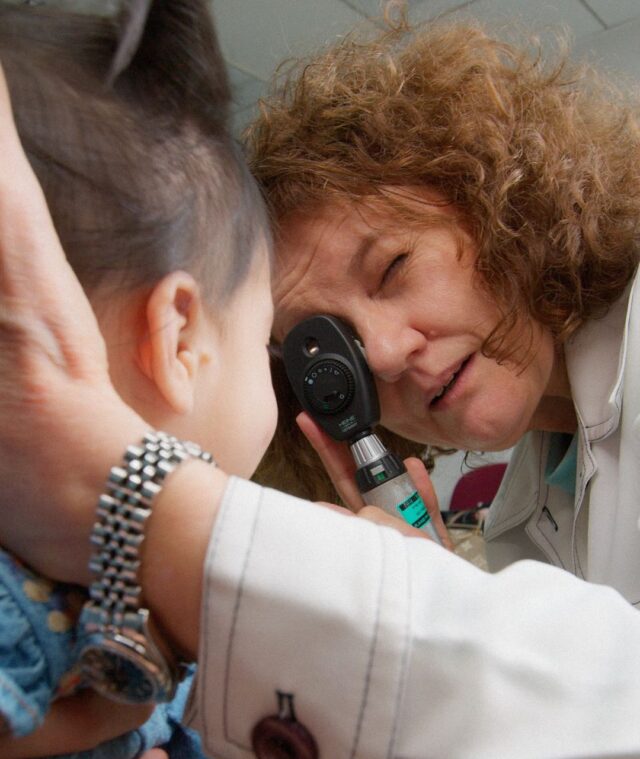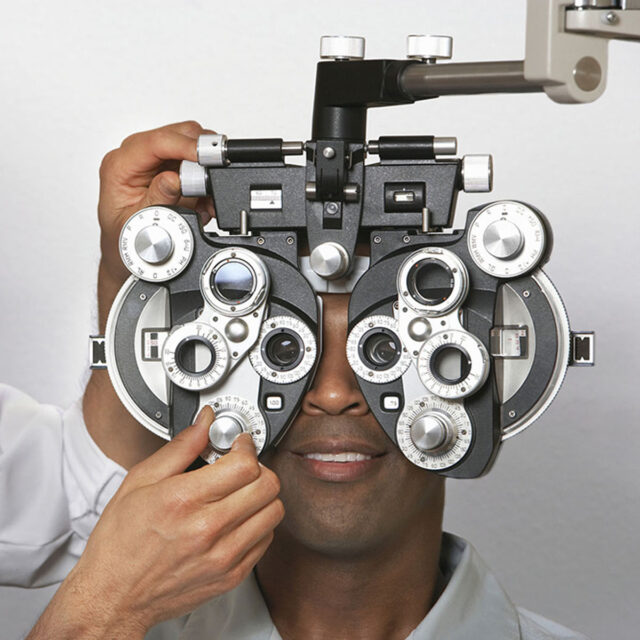If you’re tired of wearing vision correction lenses, there’s another option available. LASIK eye surgery is a corrective eye procedure that treats numerous vision problems like myopia, hyperopia, and astigmatism.
What is LASIK surgery?
LASIK stands for laser-assisted in situ keratomileusis. As the name implies, the procedure uses a highly specialized laser called an excimer laser to permanently reshape the cornea (the transparent front covering of the eye).
Using a microkeratome or a laser, a specialist eye surgeon will create a thin flap in your cornea. Lifting the superficial flap will provide access to the underlying corneal tissue, called the stroma.
The excimer laser will then remove microscopic amounts of tissue in a pre-specified pattern according to your refractive error and vision needs.
This reshapes the cornea, allowing the light to be better focused on the retina.
If you’re considering getting LASIK done, your eye doctor will perform a comprehensive eye exam and evaluate your medical and surgical history. Your doctor will make a note of any potential irregularities in your cornea and confirm whether you are a good candidate for LASIK surgery.
While LASIK is a surgical procedure, rest assured that the surgery has an excellent safety profile. Recent advancements such as the development of the femtosecond laser and wavefront technology have allowed for greater precision during the operation.
Today, LASIK is minimally invasive and relatively straightforward, especially if thoroughly assessed beforehand.
It’s an outpatient procedure that can be done within 30 minutes. That being said, it still is a surgical procedure. Knowing how to properly take care of your eyes after the surgery reduces the risks of complications.
Below are some helpful aftercare tips to ensure you see the best possible outcome.
1. Implement care tips immediately after the procedure
After surgery, almost every patient experiences a degree of discomfort.
Every patient responds to pain differently, so this can range from being a rather mild discomfort to the feeling of burning or tearing. During the first six hours after surgery, you’re also likely to experience light sensitivity. It is better to just sleep this time off for a few hours.
Your surgeon may prescribe you some medication for if you’re experiencing pain, and a series of eye drops. This will help minimize dry eyes and prevent infection. You’ll also be given protective eye shields to protect your eyes from bright light and prevent any eye rubbing.
Your eye shields should also be worn for the first four or five nights after your surgery to avoid any subconscious eye rubbing while you sleep.
While you may have clear vision immediately after the procedure, it’s unsafe to drive by yourself, due to weeping and glare. Have a friend or family member organize your transport home.
2. Rest up
The first few hours after surgery are the most critical. It’s recommended that once you get home, take a long nap. This will help you avoid any activities which may strain your eyes.
Taking a long nap will also help letting most of the discomfort pass and allow your eyes to start healing.
3. Don’t rub your eyes
While it has already been said, it bears repeating. After your surgery, fight the urge to rub or touch your eyes, particularly during the first seven days. Doing so may dislodge the flap and cause postoperative complications.
If your eyes are feeling particularly itchy, you can apply the lubricating eye drops your eye doctor prescribed for comfort and grittiness.
4. Administer your eye drops as recommended
Speaking of eye drops, you should follow your doctor’s prescribed routine. This usually means administering them at specific times of the day. Following your doctor’s advice will ensure the best results while minimizing inflammation and dryness.
Wash your hands before administering the drops to avoid any possible infection.
5. Take a bath
While you can shower the day after the surgery, it’s recommended that you take a bath. This will help you avoid getting any soap or water into your eyes. Any water exposure can wrinkle the corneal flap and increase the risk of complications.
If you must take a shower, keep your eyes closed, shower from your back, and avoid getting the direct stream of the shower water into your eyes. Only lightly dab your closed eyes without rubbing. Use your Lubricant drops after your shower / bath, if it is not yet the due time for the medications.
And as a rule, stay away from areas like swimming pools, hot tubs, and spas for at least seven days after your surgery.
6. Wear UV-protective sunglasses
After surgery, your eyes will be significantly more sensitive to light. When you’re outdoors, be sure to wear a pair of high-quality UV-blocking sunglasses. Not only will this help lessen the glare, but it will also protect your eyes from any possible wind and dust particles outdoors.
Wearing sunglasses outdoors is always a good idea, so invest in a good quality pair.
7. Don’t apply any products near the eyes
For at least a week or two after the surgery, avoid putting lotion products around your eyes. This can include makeup, creams, or lotions. Applying anything around the eyes can increase the chances of infection and inflammation, so it’s best to avoid the risk.
8. Avoid drinking or smoking
In the hours and days after your surgery, refrain from smoking cigarettes and consuming alcohol.
Both weaken the immune system, which can interfere with the recovery process. And as you might already be prone to developing dry eyes, don’t do anything that will further exacerbate this problem.
9. Avoid strenuous activities
After surgery, it’s recommended that you hold off on any sort of strenuous physical activity for the first few days. The sweat from any form of strenuous activity might accidentally irritate the eyes and increase the chance of eye rubbing or infection.
It’s better to ease into physical exercise and take the necessary precautions such as wearing protective eyewear. It’s also recommended that you avoid swimming for the first two weeks and any high-impact sports for at least a month or three.
10. Limit screen time
When our eyes are glued to a screen, whether that’s a TV, computer, or our mobile devices, we tend to blink a lot less. This can contribute to dry eyes, which is already a common side effect of LASIK, as is Light sensitivity.
To ensure no complications occur after surgery, avoid screen usage for the first 24 hours. After this period, allow yourself some time to slowly adjust back to your normal screen usage.
11. Attend your follow-up appointments
After your procedure, your eye doctor will schedule follow-up appointments to monitor your healing and ensure your recovery is progressing as expected. Be sure to attend every single appointment so you can talk to your doctor about any possible questions you may have.
See a brighter future
LASIK surgery is an appealing procedure for anyone looking to permanently correct their refractive vision problem. And thanks to significant advancements in technology, LASIK is safer than ever for the right candidate.
But, to realize the full benefits of LASIK surgery, it’s important to follow the post-operative care tips above.
Your sight matters to us.
That’s why at Gulf Eye Center, our highly qualified specialist eye doctors will develop a post-operative care plan to ensure you receive the best follow-up care possible.
Ready to find out more about LASIK? Contact us today to schedule a consultation.








